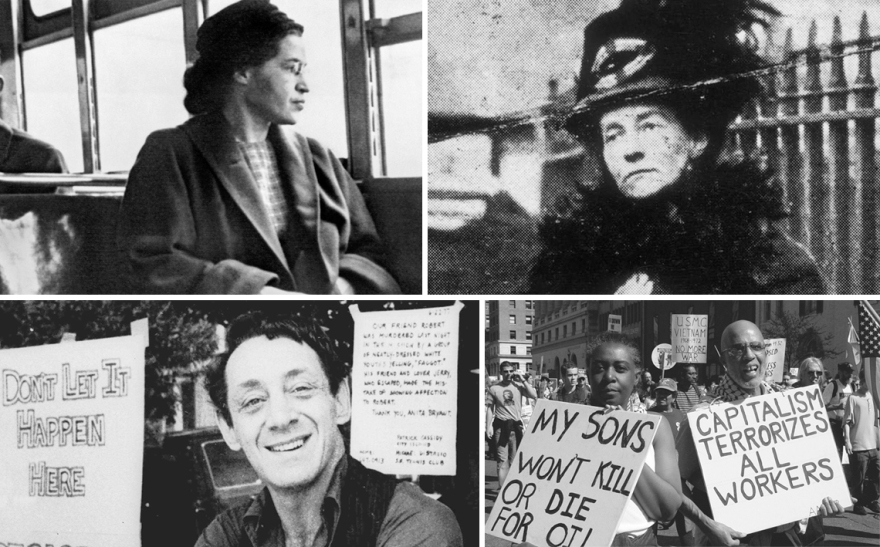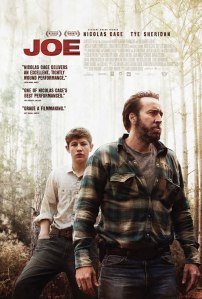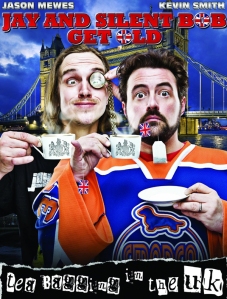Bringing you my first ever guest post! By Jamie Coughlan, of indie music zine overblown.co.uk.
***
There’s a public and very virulent epidemic in the western world. No, it’s not AIDS. It’s not alcoholism. It’s not ADHD.
It’s apathy.
It is encapsulated by the most abhorrent, pathetic and pitiful phrase you will ever hear in your life: “Things never change, so why bother?” If you ever hear someone confidently spout these despicable words with an ill-informed, patronising arrogance you should…what should you do? Should you turn your back on them and walk away? Should you acquiesce to their deluded and pathetic statement? Should you spit in their eye? No. You should stand tall, equally confident in the provable hope that exists in your rational and logical knowledge. As the speaker and his/her cronies cackle at the pathetic naïvete you display in your assertion that everything is changing all the time, you should take a breath and prepare. Don’t be cowed by traditionally accepted platitudes, and the clichéd non-thought of the morass of ignorance in your immediate presence. Straighten your back (which is admittedly against the wall) and calmly begin.
 101 years ago, women were disenfranchised. Second class citizens by virtue of being born with a uterus. A 40 year old immensely brave woman named Emily Davison stepped in front of King George V’s horse Anmer at the Epsom Derby. and suffered injuries that four days later resulted in her death.
101 years ago, women were disenfranchised. Second class citizens by virtue of being born with a uterus. A 40 year old immensely brave woman named Emily Davison stepped in front of King George V’s horse Anmer at the Epsom Derby. and suffered injuries that four days later resulted in her death.
Did she do this because things never change? No, she did this because she believed in her cause and was hopeful that her statement would have a positive impact. Now, due to her sacrifice and the brave and hopeful work of the Suffragette movement, women in the western world enjoy rights that their foremothers could only dream of. They vote, they work, they own property, they run businesses and lead governments. There is work yet to be done, but I am brave and hopeful.
59 years ago, black people were second class citizens in the western world. They were regularly segregated into ‘black’ theatres and bars. Interracial marriage was seen as unnatural and disgusting, they were forced to drink from ‘blacks only’ water fountains, and frequently the subject of gross judicial injustice. Rosa Parks, a seamstress in Montgomery, Alabama, had worked all day and decided to get the bus home. She sat in the ‘black’ section of the bus towards the back, but in the first row directly behind the ‘white’ section. As the bus filled with white people, she was instructed to move. After her refusal she was arrested for violation of the Jim Crow laws.
Did she do this because things never change? No, she did this because she believed in her cause and was hopeful that her statement would have a positive impact. Now, due to her bravery and hope and the work of civil rights groups such as the NAACP, black people and other so-called “minorities” enjoy rights their foremothers and fathers could only dream of. Interracial marriage is no longer seen as disgusting, mixed race children are no longer dismissed as “mongrels”, and there’s even a black man in the White House, a thing that my father thought he would never see in his lifetime. There is work yet to be done, but I am brave and hopeful.
37 years ago, gay people were second class citizens around the world. In many places, the act of homosexual sex, degradingly referred to as sodomy in legislation, was illegal. They were seen as degenerates, perverts and a threat to society. In California, Harvey Milk became the first openly gay person to hold political office in that state. Did he run as an openly gay person because nothing ever changes? No, he did so because he believed in his cause and was hopeful that he could be elected without compromising who he was. In 1978, he and Mayor Mascone of San Francisco were assassinated by Dan White. While this was not directly due to Milk’s homosexuality, it was linked to White being refused reappointment to the San Francisco Board of Supervisors due to his conservative agenda. A more liberal appointment was deemed more desirable in that time of social change. Now, due to Milk’s bravery and hope, and the work of LGBT civil rights groups, homosexual sex is no longer illegal, gay people can legally marry and they can adopt children in many countries. There is work yet to be done, but I am brave and hopeful.
After you have finished sharing your hope based on fact, reason and logic, you can then focus on this adherent to archaic non-intellectual and ignorant thought before you, and say to them: how dare you teach such nonsense to your children. How dare you spread it among your peers and colleagues. How dare you attempt to diminish my faith in and hope for humanity with your ill-informed and cowardly apathy. The world is in constant flux, and over time there is progressive and positive change. I will never allow your apathy to infest my faith in and hope for humanity. We are a work in progress, and progress is hard, and progress is slow.
Things will never change if you’re apathetic, pitiful, and pathetic world view takes hold. There is work yet to be done, but I am brave and hopeful.
***
Jamie is a muso, teacher and writer from Ireland. He considers himself incredibly pretentious, though no one else does, resulting in either a full confirmation or complete cancelling out of the fact, I’m not sure. He’s bad with money, and loves beer gardens (hence being bad with money. Topiary addictions are niche and expensive.)
You can find more of Jamie’s work at his site Overblown at the link above. Follow him on Twitter @OverblownZine.
What do you think about Jamie’s view of apathy? Post a comment below – if anybody would like to respond, it would be interesting to host another piece on the state of apathy…continue the train of thought!



